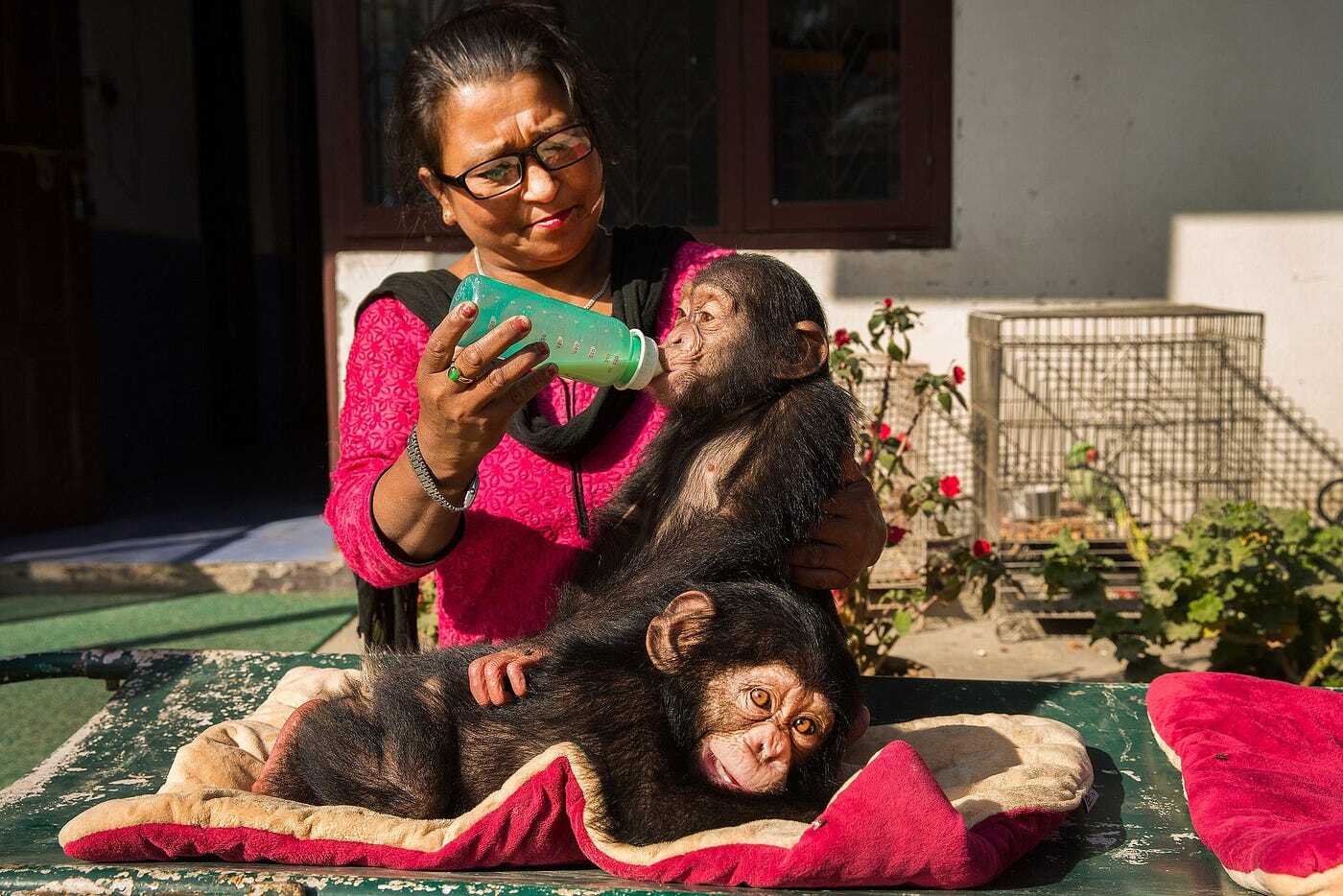
Could a human and a chimpanzee really create a hybrid called a humanzee? This question has fascinated scientists and the public alike for years. The idea of a humanzee, a blend of human and chimpanzee, sparks curiosity and ethical debates. Humanzees would combine traits from both species, potentially leading to unique abilities and characteristics. While no confirmed cases exist, stories and experiments have fueled speculation. Understanding the genetic similarities between humans and chimpanzees, which share about 98% of their DNA, makes this concept even more intriguing. Let's dive into 35 facts that explore the science, myths, and possibilities surrounding the humanzee.
Key Takeaways:
- Humans and chimpanzees share a lot of DNA, but creating a humanzee is unlikely due to ethical concerns and scientific challenges. It's more of a fascinating idea than a real possibility.
- The concept of a humanzee has sparked interest in literature and media, but scientists are skeptical about its feasibility. It's a thought-provoking topic that raises ethical questions.
What is a Humanzee?
A humanzee is a hypothetical hybrid between a human and a chimpanzee. This concept has fascinated scientists and the public alike for decades. Let's dive into some intriguing facts about this controversial topic.
- The term "humanzee" combines "human" and "chimpanzee."
- The idea of a human-chimp hybrid dates back to the early 20th century.
- Some scientists believe that humans and chimpanzees are genetically similar enough to produce a hybrid.
- Humans and chimpanzees share approximately 98-99% of their DNA.
- The possibility of creating a humanzee raises significant ethical and moral questions.
Historical Attempts and Theories
Throughout history, there have been various attempts and theories regarding the creation of a humanzee. These stories are often shrouded in mystery and controversy.
- In the 1920s, Soviet biologist Ilya Ivanovich Ivanov attempted to create a humanzee.
- Ivanov's experiments involved inseminating female chimpanzees with human sperm.
- Ivanov also planned to inseminate human women with chimpanzee sperm but was unable to carry out this part of his experiment.
- Some reports suggest that Ivanov's experiments were unsuccessful.
- Despite the failure, Ivanov's work sparked ongoing interest in the possibility of a humanzee.
Genetic Similarities and Differences
Understanding the genetic similarities and differences between humans and chimpanzees is crucial to the humanzee debate. These genetic factors play a significant role in determining the feasibility of such a hybrid.
- Humans and chimpanzees share a common ancestor that lived around 5-7 million years ago.
- The genetic similarity between humans and chimpanzees is higher than that between humans and any other animal.
- Despite the high genetic similarity, there are key differences in the DNA sequences of humans and chimpanzees.
- These differences include variations in gene expression and regulatory elements.
- Some scientists argue that these differences could prevent the successful creation of a humanzee.
Ethical and Moral Considerations
The concept of a humanzee raises numerous ethical and moral questions. These considerations are essential when discussing the feasibility and implications of creating such a hybrid.
- The creation of a humanzee would challenge our understanding of what it means to be human.
- Ethical concerns include the potential suffering and exploitation of the hybrid.
- There are also questions about the rights and status of a humanzee.
- Some argue that creating a humanzee would be a violation of natural boundaries.
- The potential for abuse and mistreatment of a humanzee is a significant ethical concern.
Scientific and Technological Challenges
Creating a humanzee would involve overcoming numerous scientific and technological challenges. These obstacles make the creation of such a hybrid highly unlikely.
- One major challenge is the difference in chromosome numbers between humans and chimpanzees.
- Humans have 46 chromosomes, while chimpanzees have 48.
- This difference in chromosome numbers could lead to issues during cell division and development.
- Another challenge is the potential for immune system incompatibilities between humans and chimpanzees.
- The development of advanced genetic engineering techniques would be required to create a humanzee.
Cultural and Media Representations
The idea of a humanzee has captured the imagination of the public and has been featured in various cultural and media representations. These portrayals often reflect our fascination and fear of such a hybrid.
- The concept of a humanzee has been explored in literature, film, and television.
- One famous example is the character of Caesar in the "Planet of the Apes" series.
- The idea of a humanzee has also been featured in science fiction novels and short stories.
- These portrayals often explore themes of identity, ethics, and the nature of humanity.
- The media's fascination with the humanzee reflects broader societal concerns about genetic engineering and hybridization.
Current Scientific Consensus
The current scientific consensus on the possibility of creating a humanzee is largely skeptical. Most scientists believe that the creation of such a hybrid is unlikely due to various biological and ethical factors.
- The majority of scientists agree that the genetic differences between humans and chimpanzees are significant.
- Ethical concerns are a major barrier to conducting experiments aimed at creating a humanzee.
- Advances in genetic engineering have not yet reached the level required to create a humanzee.
- The scientific community continues to debate the feasibility and implications of creating a humanzee.
- Despite ongoing interest, the creation of a humanzee remains a theoretical concept rather than a practical reality.
The Humanzee Mystery
The humanzee remains one of the most intriguing subjects in science. Despite numerous claims and theories, no concrete evidence has proven the existence of a human-chimp hybrid. Scientists continue to explore the genetic boundaries between humans and chimpanzees, but ethical concerns and scientific limitations make this a challenging field of study.
While the idea of a humanzee captures the imagination, it also raises important questions about genetics, ethics, and the nature of humanity. Understanding these boundaries helps us appreciate the complexity of life and the ethical responsibilities that come with scientific advancements.
In the end, the humanzee serves as a fascinating reminder of the mysteries that still exist in the natural world. Whether fact or fiction, it encourages us to keep questioning, exploring, and respecting the delicate balance of life on Earth.
Frequently Asked Questions
Was this page helpful?
Our commitment to delivering trustworthy and engaging content is at the heart of what we do. Each fact on our site is contributed by real users like you, bringing a wealth of diverse insights and information. To ensure the highest standards of accuracy and reliability, our dedicated editors meticulously review each submission. This process guarantees that the facts we share are not only fascinating but also credible. Trust in our commitment to quality and authenticity as you explore and learn with us.


